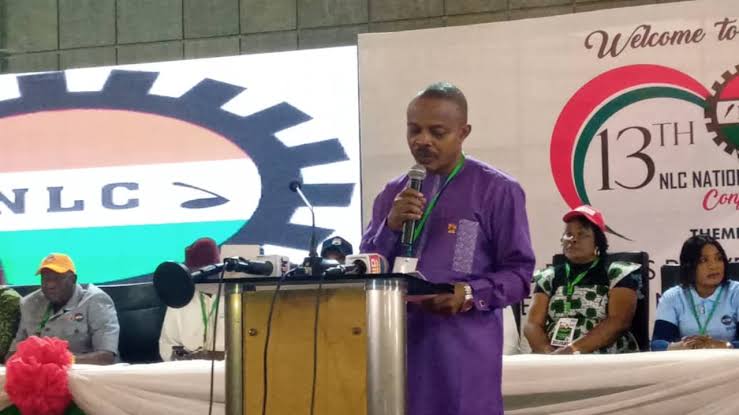Hot Stories
Recent Stories
Fuel Price Hike Inflicting Pain On Nigerian Citizens — Ajaero
Posted by Thandiubani on Thu 25th Jan, 2024 - tori.ngAjaero made these remarks at the 21st Daily Trust Dialogue, which focused on the theme “Tinubu’s Economic Reforms: Gainers and Losers.”

The President of the Nigeria Labour Congress, Joe Ajaero has lamented that Nigerian workers are still suffering hardship as a result of fuel price hike.
He made the statement at the 21st Daily Trust Dialogue, which focused on the theme “Tinubu’s Economic Reforms: Gainers and Losers.”
Nevertheless, he acknowledged that it is not too early to assess both the indicators of failure and success.
He stated that “the masses are the losers because Nigerians who were once buying fuel at N187/liter, now have to do so at the rate of N700/liter“.
Despite the hike, he highlighted that there hasn’t been a corresponding increase in salaries and wages, emphasising that the general populace is experiencing hardship.
Furthermore, he pointed out that during the tenure of former President Muhammadu Buhari, it took eight years for the exchange rate to move from N260/dollar to N700/dollar, saying, “Within six months, it moved from N700/dollar to N1,350/dollar under Tinubu. So who are the losers?” he asked.
These happenings, Ajaero said, “are a situation of public disaster and private gain.”
He stated, “We are living in a prodigal economy, and 99 percent, if not 100 percent of privatised companies in Nigeria have failed.”
Ajaero, who noted that the country has been on an increasing debt journey, queried, “Who do you think will pay it?
“I know they tell you that you have to suffer a bit so you can gain, but it has been the same story since forever.”
He concluded by expressing concern over the closure of companies and the escalating unemployment rates in the country, “so we need policies to keep people in their jobs and not the other way around.”
After his election, President Bola Tinubu announced the removal of the fuel subsidy, emphasizing that it was unsustainable for the country.
He further explained that the trillions of naira annually allocated to sustain the subsidy could be redirected to enhance sectors such as healthcare, transportation, education, housing, and national security.
Tinubu argued that the funds were currently being diverted into the extravagant bank accounts of a privileged few.
Top Stories
Stories from this Category
Recent Stories













































